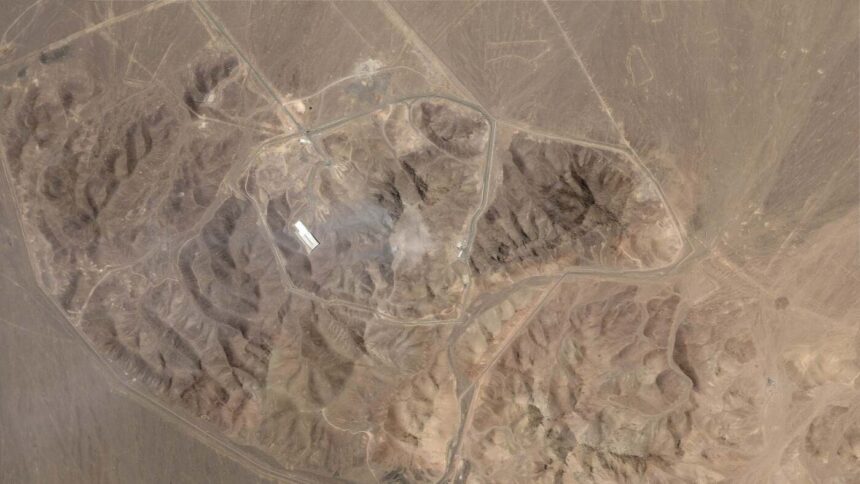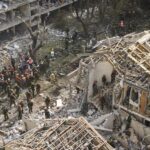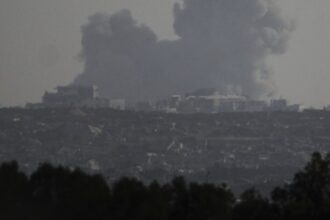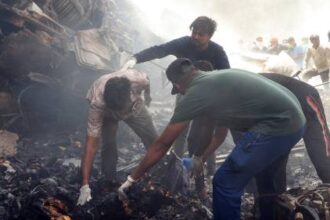In a dramatic escalation of Middle East tensions, the United States conducted a series of precision airstrikes against military installations across Iran early Thursday morning, triggering immediate and varied reactions from capitals worldwide. The operation, described by Washington as a “proportionate response” to Iranian provocations, has thrust the region into a precarious diplomatic standoff as global powers scramble to prevent further escalation.
The pre-dawn strikes targeted what Pentagon officials identified as command and control facilities, air defense systems, and missile production sites. According to initial reports, the operation lasted approximately 35 minutes and involved both naval and air assets from multiple U.S. bases in the region. President Harris, addressing the nation shortly after the strikes, characterized the action as “necessary and measured” following what she described as “repeated Iranian aggression against U.S. interests and regional stability.”
“These precise operations were designed to degrade Iran’s capacity to threaten our allies and partners while demonstrating our resolve to protect American personnel and interests,” the President stated from the White House Situation Room. “We neither seek nor desire wider conflict, but we will not hesitate to defend ourselves and our allies.”
Reaction from Tehran was swift and defiant. Supreme Leader Ayatollah Khamenei convened an emergency meeting of Iran’s Supreme National Security Council, afterward issuing a statement condemning what he termed “flagrant American terrorism” and promising a “decisive and appropriate response at a time and place of our choosing.” Iranian state media broadcast images of demonstrations in Tehran, with crowds chanting anti-American slogans and burning American flags.
European allies have expressed mixed reactions, with many acknowledging U.S. security concerns while urging immediate diplomatic engagement. British Prime Minister Starmer offered qualified support, stating that “while we understand the U.S. imperative to respond to provocations, we call on all parties to exercise maximum restraint and return to dialogue.” French President Macron went further, warning that “military escalation benefits no one and risks regional conflagration that could prove impossible to contain.”
The response from Russia and China was predictably critical. Moscow condemned the strikes as “another example of American unilateralism” and called for an emergency UN Security Council meeting. Beijing similarly denounced the action as violating international law, with Foreign Ministry spokesperson Li Wei stating that “military solutions only compound problems” and reiterating China’s call for “dialogue over confrontation.”
Regional reactions reflected complex geopolitical calculations. Israel’s Prime Minister expressed “unequivocal support” for the American action, while Saudi Arabia issued a carefully worded statement emphasizing the kingdom’s “commitment to regional stability” without explicitly condemning or supporting either side. Turkey, straddling NATO membership and regional ties, called for “immediate de-escalation and return to diplomacy.”
The economic impact was immediate, with oil prices surging over 8% in early trading as markets reacted to potential supply disruptions. The benchmark Brent crude jumped to $97 per barrel, its highest level since 2022, while gold prices climbed as investors sought safe haven assets. Energy analysts warn that prolonged tensions could drive prices higher, potentially impacting global economic recovery.
Humanitarian organizations have expressed alarm about the potential civilian impact. Médecins Sans Frontières reported that hospitals in Tehran were preparing for potential casualties, while the International Committee of the Red Cross reminded all parties of their obligations under international humanitarian law to protect civilian infrastructure.
Canadian officials have joined calls for restraint, with Prime Minister Trudeau stating that “diplomatic solutions remain essential” while acknowledging “legitimate security concerns on all sides.” Global Affairs Canada has updated travel advisories for the region, warning Canadian citizens to avoid all travel to Iran and surrounding countries.
As night falls across the Middle East, the international community watches with bated breath. Will this limited military exchange serve as a release valve for accumulated tensions, or is it merely the opening salvo in a wider and more dangerous confrontation? The answer may well determine the trajectory of global security for years to come.














